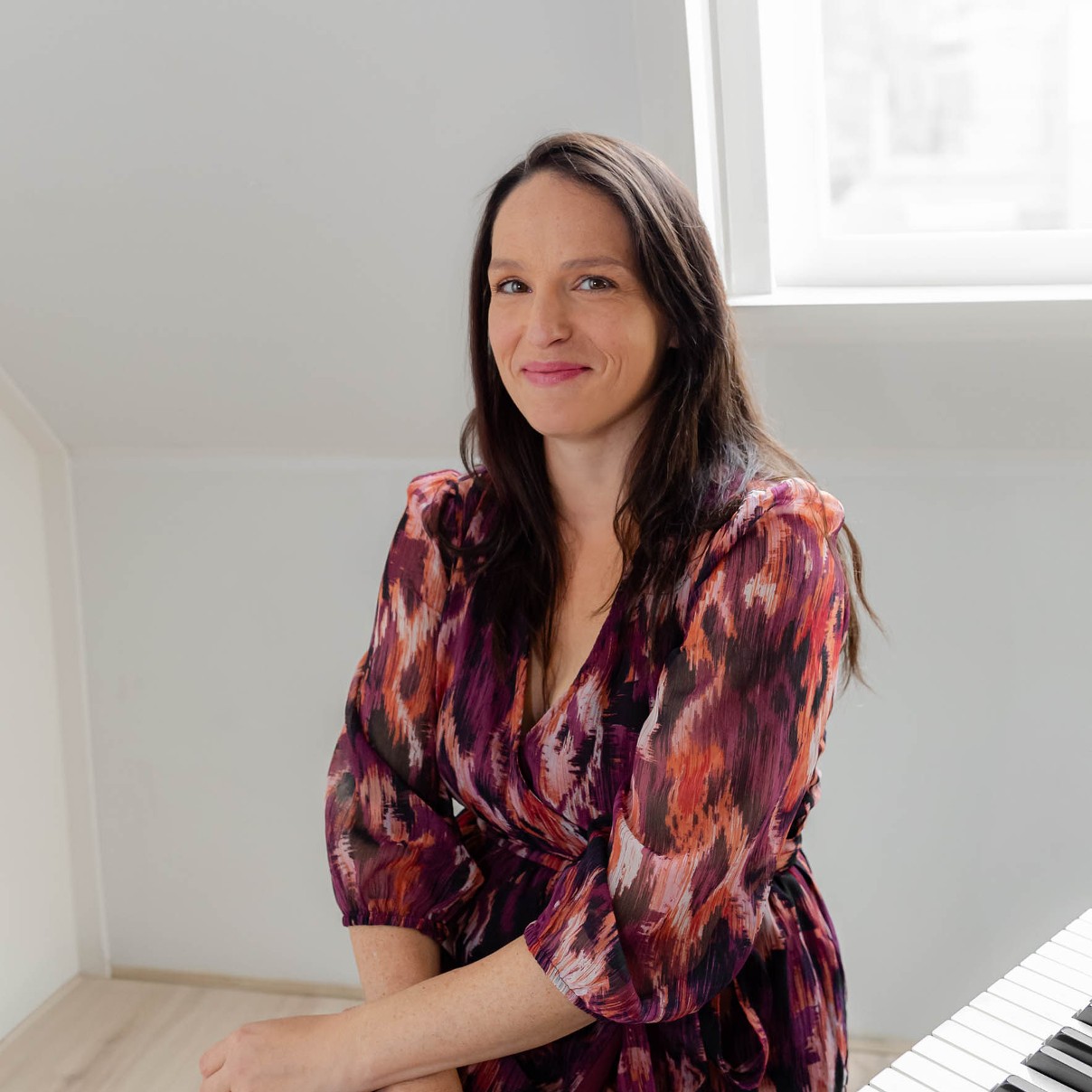Singing is like a language, or a mix between a language and a motor skill, if you will. When learning a new language, one often hears the advice to study every day. Does the same advice hold for singing? How often should you take voice lessons? And how often should you practice in between?
Unfortunately, the language of the physical functioning of the voice works a bit differently. I maintain that it is NOT advisable to take daily voice lessons, and that the highest frequency should be twice a week. Let me explain why.
After a voice lesson, you need time to process what you learned. A day is not enough to expericne new vocal ways and develop awareness. A few days in between can be enough though.

How often to take voice lessons: summary
- At least a weekly lessons is good for beginners, possibly even twice a week. Practice regularly between lessons.
- Advanced singers can go less often, provided they meet point 3
- Your progress depends on your ability to be your own tutor. Advanced singers are better at this
- If two lessons per week is not an option, then try to arrange feedback from the teacher between lessons. It helps to keep you on the right track during practice sessions at home.
- Even in inactive mode, without goals on the horizon, it's good for singers to have an extra set of ears once in a while
Repetition is key: practice regularly between lessons
Why does it take a while to get better? It is because there is a significant time gap between the moment we comprehend a technical principle and when our body masters it. Renée Fleming, opera star, said: “I’ve finally accepted the fact that singing takes ten minutes to explain and ten years to accomplish.”
We are not stupid, we get it when we hear it the first time: relax your shoulders, reposition your tongue, breath low, expand your ribs sideways, and so forth. That shouldn’t be so hard! But still our body takes its time to follow. That is how muscle memory works. If you want to train your body to get used to an activity it is not used to, the secret is repetition.
And where do we do that painstaking work? At home. Not with the teacher, but with ourselves, a mirror, a keyboard and four walls. That is where the magic happens. We take the teacher’s instructions (which we may or may not have followed during the lesson) and drill that into our systems. That is THE secret. Repetition. Repetition. And… you get it.
To put it plainly: going to lessons without practicing in between is a waste of your time and money. Do yourself a favor and practice at least 5 times a week, will you? Practice a maximum of 6 days week, you need a day of rest

"
“I’ve finally accepted the fact that singing takes ten minutes to explain and ten years to accomplish.”
Renée Fleming, opera star
How often for beginners
As a beginner, you are probably at a stage when you are not always sure if you are singing correctly or not. You barely have any idea about vocal technique and you might feel helpless without your teacher. In this case, take two lessons a week if you can. Practice no more than 20 minutes a day, to make sure you don’t do yourself any harm. Playing around with your voice is fascinating, but it can also be dangerous, if you don’t know what you are doing.
**Important principle! Even though you don’t know what you are doing, you know when your throat hurts! Pay attention while you sing at home and if something is uncomfortable, STOP, and try something else. If it feels weird, but not painful or like an effort, it’s cool. Weird is good, you are trying to form new habits, which by their very nature won’t feel familiar.***
More advanced singers
After you’ve learned some things and practiced some, you’ll begin to realize when you are doing it right and when wrong. You can then reduce the frequency to once a week, and keep the same practice routine. The more you are able to judge by yourself what you are doing wrong and the more tools you have to fix it, the fewer lessons a month you can take. Provided that you keep up the work at home and repeat the exercises with your lovely instrument.
Get feedback from your teacher between lessons – super helpful
In the world of increasingly online singing lessons, If your teacher is up for this, this is a method with low investment and high returns. Staying in touch with your singing teacher between lessons, even through short online video clips, can leverage the effect of your practice session.
Your vocal coach not only offers technical feedback but also provides motivation and encouragement, keeping you inspired when progress feels slow. Regular check-ins help prevent bad habits by correcting mistakes early, ensuring proper technique and long-term vocal health. Also, in my experience, this consistent feedback accelerates improvement. It allows you to make targeted adjustments and achieve better results more efficiently.
About the author

I’m Linor Oren, founder of SingWell. I have an opera background and in the past I've performed on stage. I've taught hundreds of students how to find their authentic voice. What I’ve learned is that singing isn’t about being “born with it” — it’s about unlocking what’s already inside you with the right tools and guidance. My passion is helping singers at every level grow in confidence, technique, and joy, so they can sing with freedom and expression.
How long to wait between lessons, max?
In a time of an existential crisis, after years of intense vocal training, I figured this out: you don’t have to be dependent on the teacher all the time. I was in a lesson where I learned a very basic technical element for the first time, or, to be fair, realized it for the first time. I began doubting myself as a singer, as a student, as an intelligent person!
I went home and decided I would not take lessons again with my teacher before managing to pull that trick off. I practiced every day for a whole month, and when I went back my teacher was impressed, to say the least. We both understood that once a month was the deal from then on. She might get paid less, but the lessons would be much more satisfying. To be honest, there were times in which I took one lesson every two months, or even less frequent. It worked for me, as I was at the time advanced enough to know when I needed the feedback.

"
“Your progress depends less on how often you take lessons and more on how well you practice between them. Singing lessons are checkpoints — real growth happens in your practice room.”
I hope the point is clear by now: your progress depends on your ability to be your own tutor. Is your understanding of basic technique sufficient to correct yourself on the battle field, aka, your practice room? This understanding will progress, with time, enabling you to take lessons less often and have more effective, long lasting changes in your singing.
I teach singing online
Let me remove your rasp.
Will I ever be able to stop voice lessons altogether? Hmm….no. And yes. Our voice sounds completely different from the outside than it does in our head. Therefore, we cannot rely on just our ears when practicing for long stretches. It is very helpful to record (better still – to film) yourself and examine the results.
Maybe some would argue that this is enough for advanced singers. Still, in my opinion, one should have an extra set of eyes and ears. Go to a teacher once in a while, or exchange lessons with a colleague of about your level.
No longer a little mouse...
Maybe you feel it's time to stop shushing your own voice and take your desire to sing serious. My weekly 'Belting Mouse' mail shows you how. It gets you on track with stories and insights from my life as a singer and that of my students.

For 'little mice' who are tired of squeaking and want to start belting...
Frequently Asked Questions
How often should I take singing lessons as a beginner?
If you’re just starting out, aim for one to two lessons per week. Beginners often need frequent feedback to ensure they’re practicing safely and correctly. Keep practice sessions short (around 20 minutes a day) to avoid strain. Listen to your body: if your throat hurts, stop and reassess.
How often should advanced singers take lessons?
Once you can reliably assess and correct your own technique, one lesson per week or even once a month can be sufficient. The key is to maintain regular practice and self-awareness. Advanced singers benefit from occasional feedback to refine technique and prevent bad habits from forming.
How important is practice between lessons?
Absolutely essential. Without consistent practice, even frequent lessons won’t help much. The real progress comes from repetition at home, applying what you learned until it becomes second nature. Linor recommends practicing five to six days a week and resting one day to let your voice recover.

